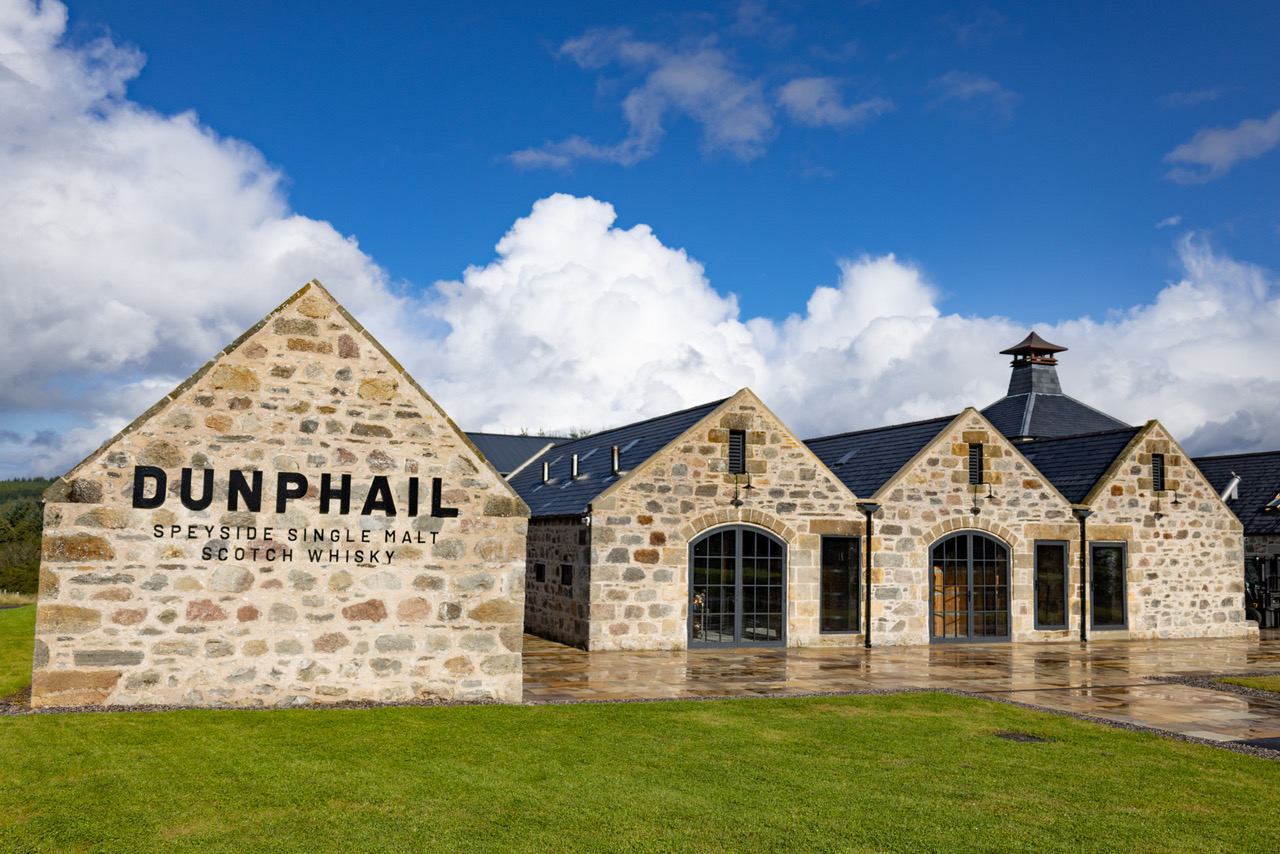Scotch in Speyside the Polish way - Dunphail Distillery launches

Literally a few days ago, whisky production began at another new distillery in Scotland. But is it really just another one of a number of new Scottish distilling ventures? Definitely not, and for several reasons.
According to Whisky Magazine, followed by other trade media, the Dunphail distillery went from "under construction" to "in production" on October 6, 2023, to be exact. The new plant is located in the Speyside region, slightly south of the village of Forres, in the northern part of the region of. Old historic farm buildings, a disused farm with the same name as the new distillery, were chosen as the location.
What makes it unique? First, it is a semi-Polish venture. Dunphail is the second distilling brainchild of our compatriot Dariusz Plazewski, founder of the highly acclaimed London-based whisky distillery Bimber, which is highly regarded by whisky lovers. Multigenerational family distilling traditions - although not always legal - have resulted in high-quality spirits for several years now bottled under the brand name Bimber.
Dunphail is to enable distillers with Polish roots to do what was not possible in London, in buildings squeezed tightly between other factories, workshops, homes. Spreading your wings, nothing (within reason) limited experimentation, and, above all, malting barley yourself. Besides, the term "Scotch whisky" on the liquor label is in itself no small ennoblement.
Dunphail has installed 12 traditional fermentation vats made of Douglas fir to carry out 144-hour fermentation, including secondary malolactic fermentation. Distillation will be carried out in three copper alembics - one for primary distillation, two for secondary distillation. The alembics are heated by direct flame, and will achieve a target capacity of about 200,000 liters of pure alcohol per year (initially only 100,000). A wide range of casks will be used to mature the whisky, from bourbon hogsheads to sherry butts to quarter casks.
Most importantly, however, the production of whiskey at Dunphail will be based 100 percent on barley malt prepared in-house in a malting plant using the traditional floor malting method. Both peat-free, hot air-dried words and its smoky, peaty version will be prepared. So, years later, we can expect at least two types of Dunphail single malt whisky. How many of those years will pass before we can enjoy it is hard to say. According to Matt McKay, manager of the whole project - the whiskey will be ready when it is ready. This may already mean an initial assumption that the whisky will take noticeably longer to mature here than at Bimber Distillery. This is further indicated by several other factors. Bimber primarily used first-fill barrels, allowing for quicker satisfactory results due to the greater activity of the wood. At Dunphail, the focus will be on refill barrels. This, coupled with the fact that the Scottish climate is incomparably harsher than that of London, may indicate that the whisky needs to be aged for a long time.
Environmental aspects were also not neglected at the planning and construction stage of the distillery. Dunphail is powered by solar panels, and there are plans to build small wind turbines. Water consumption has been reduced by an incredible 70% by using a closed-loop cooling system. There are also plans to convert alembics from gas heating to steam heating, as appropriate technologies emerge.
A Visitor Center and store offering whiskeys bottled under The Dava Way brand is now in operation in Dunphail. In time, it is expected that the offer will be expanded to include the possibility of tastings in the customs warehouse and whisky buying workshops.
[18.10.2023 / photo: Dunphail Distillery]